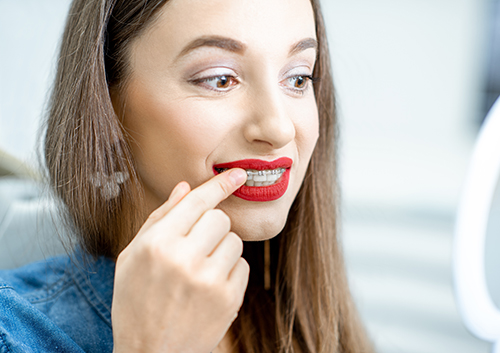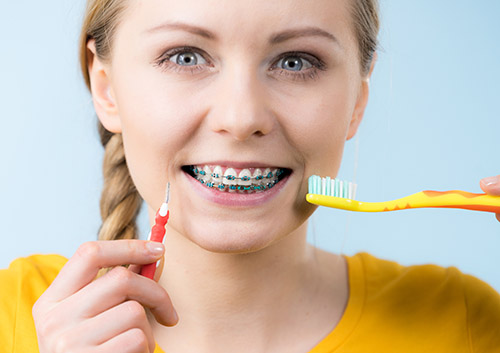Three Classic New Year’s Resolutions for Your Dental Health —and Three Which Might Surprise You!
January 7th, 2026

Whether you’re using the latest note-taking app or old-school pen and paper, it’s a good time to start jotting down your resolutions for a healthier, happier New Year. To help the process along, we have some suggestions for traditional tooth-friendly resolutions—and also some ideas which might surprise you!
The Classics
- Brush and Floss Regularly
If you’re brushing for two minutes each time you brush, great work! Often, though, that two-minute window starts to shrink as our brushing routine becomes *too* routine. Try timing yourself while you brush normally. If you’re falling quite a bit short of two minutes, taking just a bit more time will be lots more effective in removing plaque from your teeth. And flossing is essential to remove irritating plaque and bacteria from between teeth and around the gumline.
Typically, dentists recommend brushing twice a day and flossing once daily. If the team at GSD Orthodontics recommends brushing and flossing more often to keep your brackets and wires free from food particles and built-up plaque, be sure to stick to this new schedule for a beautiful, cavity-free smile when your orthodontic treatment is complete.
- Use Fluoride Toothpaste
Fluoride toothpaste doesn’t just help prevent cavities by cleaning away plaque and food particles. It also helps make our enamel stronger.
Acids created by plaque bacteria and acids in our diet dissolve minerals from tooth enamel, making it softer and more vulnerable to cavities. Fluoride bonds with the minerals in enamel to create an even stronger protective enamel coating. Check with your dentist or the American Dental Association’s website for the best toothpaste choices for healthy, strong enamel.
- See Your Dentist Regularly
Dentists typically recommend a full dental exam and cleaning twice each year. Your dental team will take X-rays as needed, examine your teeth, gums, and general oral health, and screen for oral cancer. A professional cleaning will remove plaque and tartar, which is especially important for gum health and for protecting the enamel near your brackets and wires, where plaque tends to build up.
Being proactive with your dental care means you’ll be sharing your healthy smile all year long—as well as discovering any potential problems before they can develop into major problems!
The Surprises
- Chew (Sugarless) Gum
When you’re not producing enough saliva, you feel the effects of dry mouth, including sore throat, difficulty swallowing, and bad breath. Another side effect? Poorer dental health.
Saliva helps neutralize the acidic foods we eat, washes away bacteria and food particles, and contains minerals like calcium and phosphorus which remineralize tooth enamel. Chewing sugarless gum encourages saliva production. Check with Dr. Gregory Dyer to see if it’s okay to chew sugar-free gum if you wear braces, and, if you use aligners, be sure to remove them before chewing and brush before putting them on again.
- Don’t Brush Right After Eating
Brushing after a meal is great to remove food particles like sugars and carbs which stick to our teeth—and braces—and which the bacteria in plaque thrive on. But if you’ve been eating or drinking acidic foods, it’s best to wait about an hour before brushing.
Acids in foods, like acids created by bacteria, weaken tooth enamel. Brushing right away can be abrasive and damage enamel, but if you wait for an hour, the minerals in saliva have a chance to remineralize and restore your enamel strength.
- Toss Your Toothbrush
Not that we mean give up brushing altogether! But your toothbrush bristles start to fray and fan out after several months, meaning that you won’t be getting the full cleaning effects of your great brushing technique. Put a note on your calendar to replace your brush every three to four months for the best in plaque removal.
If you’re already following all these suggestions for protecting your dental health, resolve to keep up the good work! If not, give these easy-to-follow recommendations a try. Protecting your dental health is essential to gift yourself a new year filled with happy, healthy smiles in Tampa.











 Website Powered by Sesame 24-7™
Website Powered by Sesame 24-7™